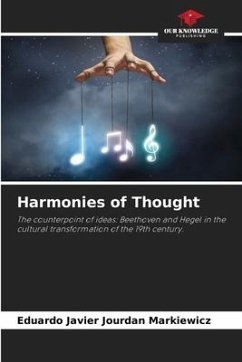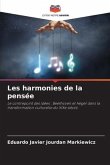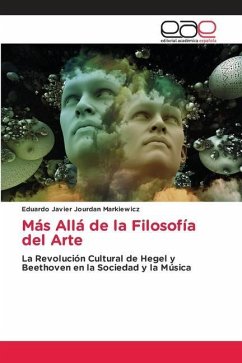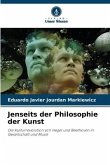In the 19th century, Europe was experiencing a cultural revolution in which Beethoven's music and Hegel's philosophy were two important expressions. Both sought to liberate music and thought from the limitations of the past and to explore new possibilities for human expression. The combination of Beethoven's music and Hegel's philosophy remains a powerful testimony to the capacity of human creativity to change the world.Hegel, through his aesthetic philosophy, argued that art should be an expression of human freedom and objective truth. He believed that art had the capacity to transform culture and society, and that it should be a constant search for perfection and innovation. On the other hand, Beethoven challenged the conventions of his time and created a new musical language that was characterized by its expressiveness, originality and complexity. Through his compositions, he explored themes such as freedom, passion and the struggle against adversity. Works such as the Heroic Symphony, the Fifth Symphony and the Ninth Symphony are considered masterpieces of classical music, with a great social and cultural impact.
Bitte wählen Sie Ihr Anliegen aus.
Rechnungen
Retourenschein anfordern
Bestellstatus
Storno








